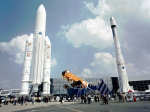 An article (subscription only) in today’s edition of Inside U.S. Trade reports on the hearing held last Friday by the House Foreign Affairs Subcommittee on export controls. We have previously described the prepared testimony of Christopher Padilla, who heads Export Administration at the Bureau of Industry and Security (“BIS”), which he gave during that hearing. During the Subcommittee’s questioning of Padilla, the subject of processing times for license applications at the Department of State’s Directorate of Defense Trade Controls (“DDTC”) came up:
An article (subscription only) in today’s edition of Inside U.S. Trade reports on the hearing held last Friday by the House Foreign Affairs Subcommittee on export controls. We have previously described the prepared testimony of Christopher Padilla, who heads Export Administration at the Bureau of Industry and Security (“BIS”), which he gave during that hearing. During the Subcommittee’s questioning of Padilla, the subject of processing times for license applications at the Department of State’s Directorate of Defense Trade Controls (“DDTC”) came up:
Padilla also criticized the staffing level of DDTC, which processes several times the licenses processed by … [BIS] with roughly half the staff. “In my personal opinion, I don’t think the State Department has sufficient resources to do the job,” Padilla said at the hearing.
Foreign Affairs Subcommittee Chairman Brad Sherman has been considering a user fee for export license applications processed by DDTC in order to try to speed up processing times. According to the Inside U.S. Trade linked above, aides to Sherman are circulating a draft of the proposal and are trying to keep the fees low enough to attract sufficient support and yet still be sufficient to ameliorate the processing delays.
Not everyone, however, is happy with the user fee proposal. The Vice-Chairman of the Subcommittee David Scott, who represents Marietta, Georgia, where Lockheed has operations, had this to say:
Any move toward a user fee to process a license could severely restrict the ability of industries to do business in a free market way
That’s what they might call hogwash in Georgia since the requirement to get an export license has pretty much tossed the ability “to do business in a free market way” out the window. Obviously, Scott just wants the taxpayer to bear the costs of processing the licenses and not the companies benefiting from them.
However, there is a compromise position that might have a better chance of acceptance by everyone involved. DDTC could impose, in the same way that the Citizenship and Immigration Services does, a premium processing fee, so that companies that need export licenses on a faster track would have that option but would have to pay for the privilege.

 Posted by
Posted by  Category:
Category: 

 An
An  Officer Ozzie Ossifer is patrolling in Vermont near the Canadian border when he witnesses a juvenile engage in an act of malicious criminal cow-tipping. He takes off after the delinquent who crosses the Canadian border. He follows the youth into Canada, his service revolver still firmly stored in his holster. Donuts and desk work have taken their toll on Officer Ossifer and the youth eludes him.
Officer Ozzie Ossifer is patrolling in Vermont near the Canadian border when he witnesses a juvenile engage in an act of malicious criminal cow-tipping. He takes off after the delinquent who crosses the Canadian border. He follows the youth into Canada, his service revolver still firmly stored in his holster. Donuts and desk work have taken their toll on Officer Ossifer and the youth eludes him.  For those of you who didn’t get to go to the Paris Air Show at Le Bourget and have been left behind, like me, to swelter in the heat and humidity of late June in the District of Columbia (or elsewhere), ExportLawBlog brings you the next best thing — a blog post on Le Bourget! (Well, maybe not the next best thing.)
For those of you who didn’t get to go to the Paris Air Show at Le Bourget and have been left behind, like me, to swelter in the heat and humidity of late June in the District of Columbia (or elsewhere), ExportLawBlog brings you the next best thing — a blog post on Le Bourget! (Well, maybe not the next best thing.)

